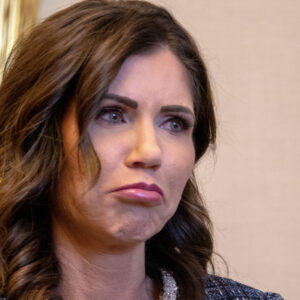President Donald Trump has opened a new and explosive front in his political war against what he calls “globalist influence operations.” In a fiery announcement, he declared that billionaire philanthropist George Soros and his vast network of affiliated organizations would be formally investigated under the Racketeer Influenced and Corrupt Organizations Act, better known as RICO.
The accusation is extraordinary. According to Trump, Soros is not simply funding causes he supports but is actively training, radicalizing, and mobilizing young people to destabilize the United States. He alleged that Soros’ financial network is fueling unrest, violent protests, and extremist movements, creating what he described as “a coordinated effort that qualifies as organized crime.”
“We will not allow billionaires like Soros to destabilize our nation by funding chaos,” Trump declared. “This is not about free speech or philanthropy—this is about criminal activity.”
For Trump and his supporters, the announcement represents a dramatic escalation in his long-running campaign against liberal megadonors and global institutions. For critics, however, it raises alarm bells about weaponizing the justice system against political adversaries, with implications that could ripple far beyond U.S. borders.
Why RICO Matters
The RICO Act, passed in 1970, was originally designed to dismantle organized crime families. It allows prosecutors not only to target low-level operatives but to bring down leaders who orchestrate illegal activities through elaborate webs of shell companies, nonprofits, and middlemen. The statute has been used against the Mafia, corrupt unions, drug cartels, and even certain white-collar crime schemes.
If Trump’s Justice Department applies RICO to Soros’ network, the results could be unprecedented. Instead of targeting just one organization, investigators could attempt to show that a constellation of nonprofits, advocacy groups, and activist training programs function as part of a single criminal enterprise. That would open the door to sweeping indictments, asset seizures, and potential shutdowns of organizations linked to Soros funding.
Legal scholars note that such a move would push RICO into uncharted territory. While conservatives have long accused Soros of bankrolling radical causes, proving that his philanthropy constitutes organized crime would require prosecutors to establish intent, coordination, and unlawful outcomes. It would also set a precedent for applying racketeering laws to political funding networks—something that could just as easily be turned against conservative donors in the future.
The Bigger Picture
Soros has spent decades as one of the most polarizing figures in global politics. Through his Open Society Foundations, he has donated billions to causes ranging from human rights and press freedom to education and progressive political movements. Admirers hail him as a defender of democracy and individual rights. Critics accuse him of meddling in sovereign nations, destabilizing economies, and undermining traditional values.
In Eastern Europe, Soros has been a lightning rod for years, blamed by nationalist leaders for protests against their regimes. In the United States, his name has become shorthand in conservative circles for the financial engine behind left-wing activism. Trump’s decision to elevate those suspicions into a formal criminal investigation signals that Soros is now a direct target of state power.
“This is not philanthropy, this is manipulation,” Trump said. “This is about taking young people, radicalizing them, and sending them into the streets to tear apart our cities. We are done tolerating it.”
Supporters of the move argue that it is long overdue. To them, Soros’ funding has distorted democratic debate by artificially inflating activist movements and media narratives. They point to protests, campus disruptions, and social unrest as evidence of a coordinated campaign designed to weaken the country from within. “This is accountability,” said one senior Trump advisor. “For too long, one man has been able to buy influence and shield chaos with tax-exempt dollars. That ends now.”
Critics, however, see the RICO talk as both dangerous and potentially unconstitutional. Applying racketeering charges to a billionaire philanthropist for funding lawful organizations could blur the line between free speech and criminal conduct. It risks turning philanthropy into a prosecutable offense whenever the political winds shift.
“This is a Pandora’s box,” warned one constitutional law professor. “If the government can declare that an entire philanthropic network is a criminal enterprise simply because it funds causes the ruling party dislikes, then no donor—liberal or conservative—is safe.”
A Brewing Battle
The announcement also has global ramifications. Soros’ network extends far beyond the United States, with influence in Europe, Africa, Asia, and Latin America. If RICO charges are pursued, international affiliates could find themselves scrutinized, frozen out of U.S. financial systems, or even targeted for extradition. Allies of Soros warn this could damage America’s reputation as a defender of free association and civil society.
But Trump’s allies see it differently. They argue that globalism itself has become a form of organized crime, using legal loopholes, media influence, and activist armies to weaken national sovereignty. By treating Soros as a crime boss rather than a philanthropist, they say, Trump is reframing the battle over global influence as one of law and order rather than politics.
“This is about sovereignty,” Trump insisted. “This is about stopping foreign-backed billionaires from using their money to control our country. We are taking our nation back.”
The fight promises to be fierce. Soros, now in his nineties, has weathered decades of attacks but never one this direct. Legal teams are expected to challenge any RICO proceedings as politically motivated, while Democrats will likely frame the move as an abuse of power designed to silence opposition. On the world stage, allies may view it as a chilling message to wealthy donors who support democratic reforms abroad.
What Comes Next
As of now, Trump’s announcement is more declaration than legal fact. The Justice Department has not yet unveiled formal indictments, and it remains unclear whether prosecutors will actually attempt to use RICO statutes in this way. But the signal is unmistakable: Trump intends to treat Soros not as a political adversary but as a criminal figurehead of what he calls a “radical network.”
The move comes amid a broader crackdown on what Trump describes as “domestic subversion.” Earlier in the summer, he deployed National Guard troops to Los Angeles to quell protests sparked by immigration raids. More recently, he has hinted that other cities—New York, Chicago, San Francisco—could see federal interventions if unrest continues. Now, by targeting Soros, he is pointing to what he believes is the source of the unrest, not just its symptoms.
The announcement has electrified Trump’s base, who see it as confirmation that he is willing to confront the billionaire they believe has long manipulated global events. At rallies, chants of “RICO Soros!” have already begun to echo, a new slogan for a movement that thrives on conflict with perceived elites.
But for critics, the development is ominous. It blurs the line between law enforcement and politics, philanthropy and crime, dissent and conspiracy. Whether the courts will uphold such a move remains uncertain, but the political firestorm it ignites is guaranteed.
As this story develops, one thing is clear: Trump has once again chosen escalation over restraint. By invoking RICO against George Soros, he has taken a tool once reserved for mob bosses and drug lords and pointed it at one of the most influential philanthropists of the modern age. Whether it results in indictments or collapses in court, the battle over Soros will shape the next chapter of America’s political wars—and perhaps redefine the limits of power itself.


